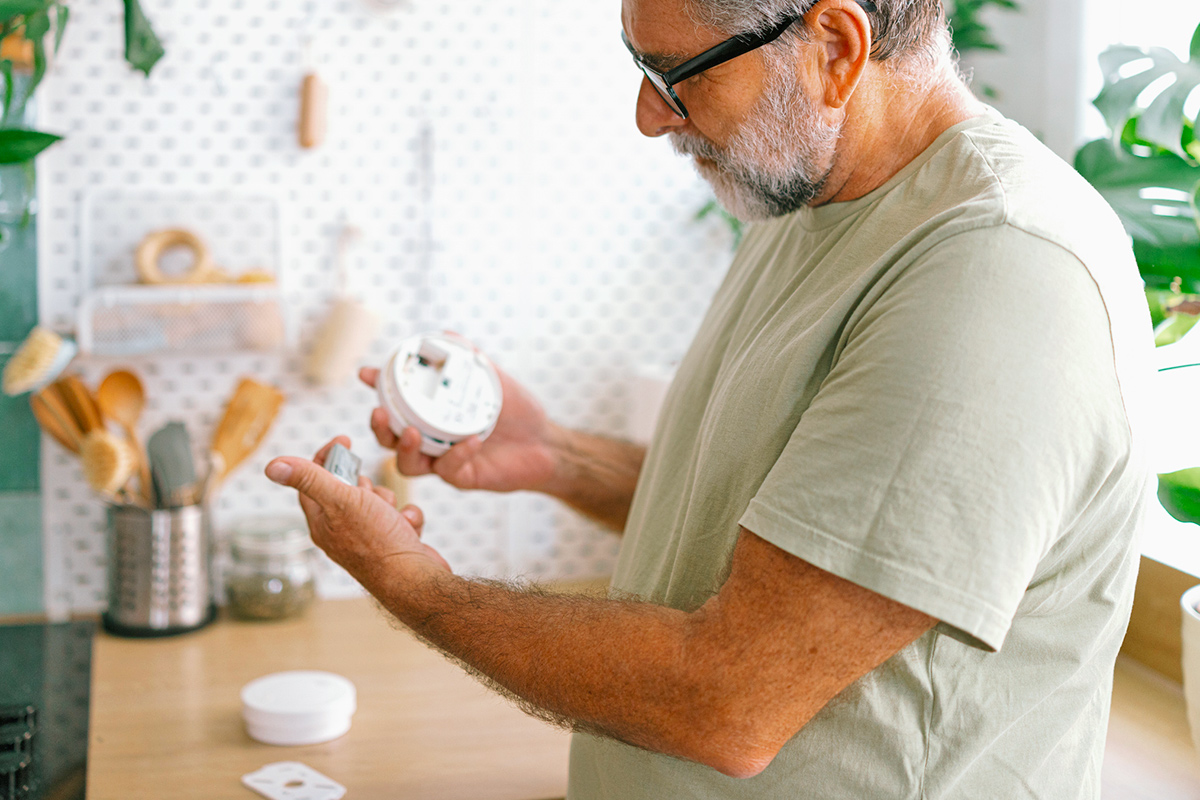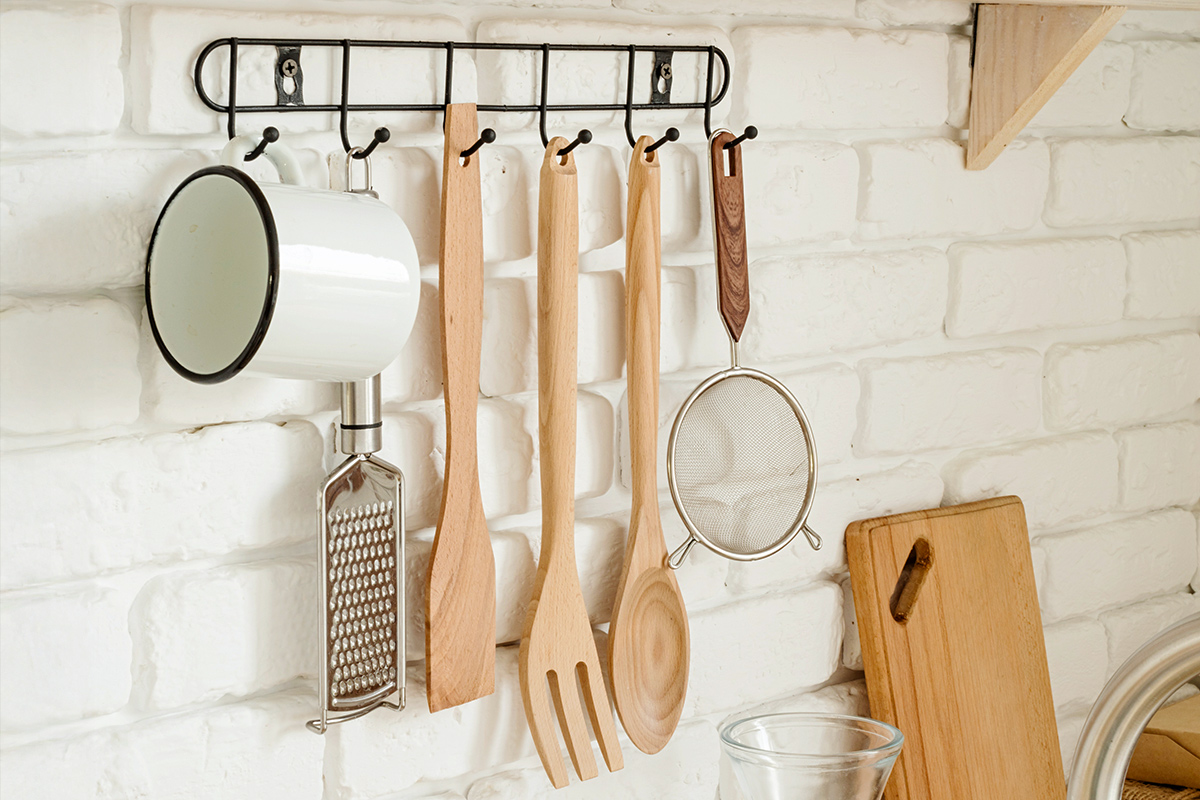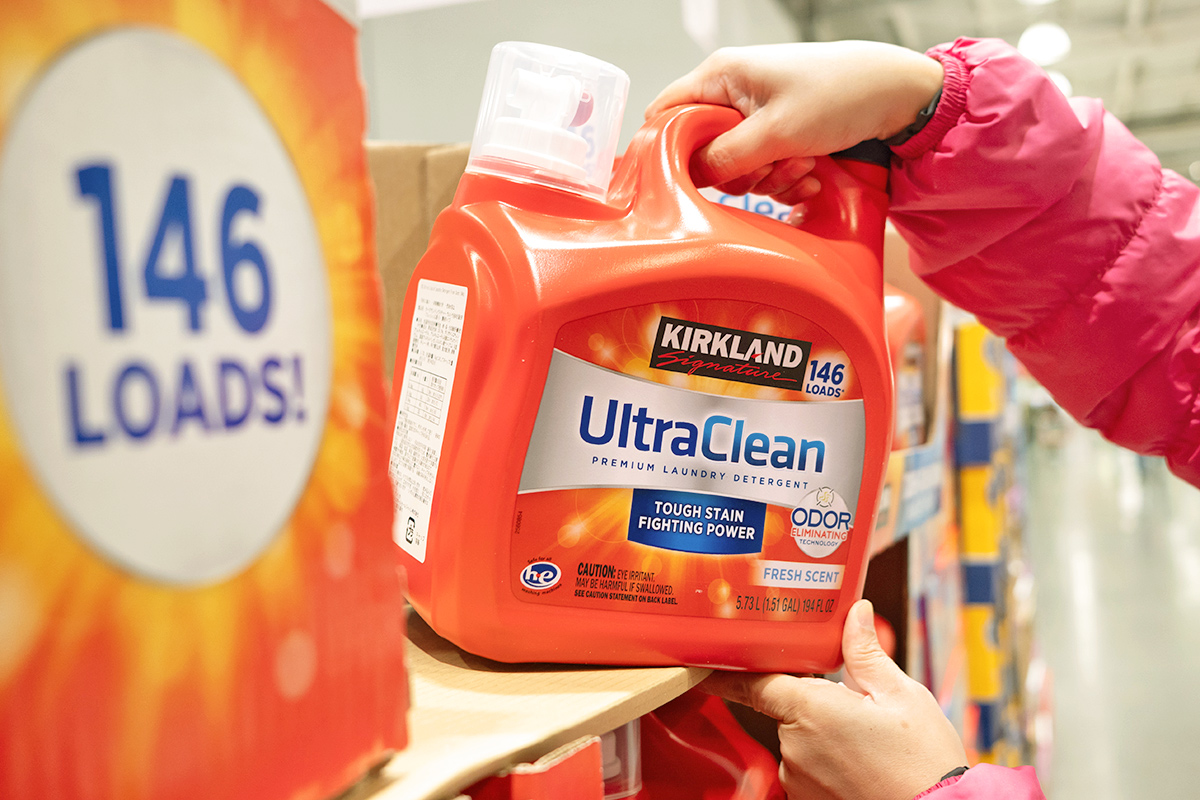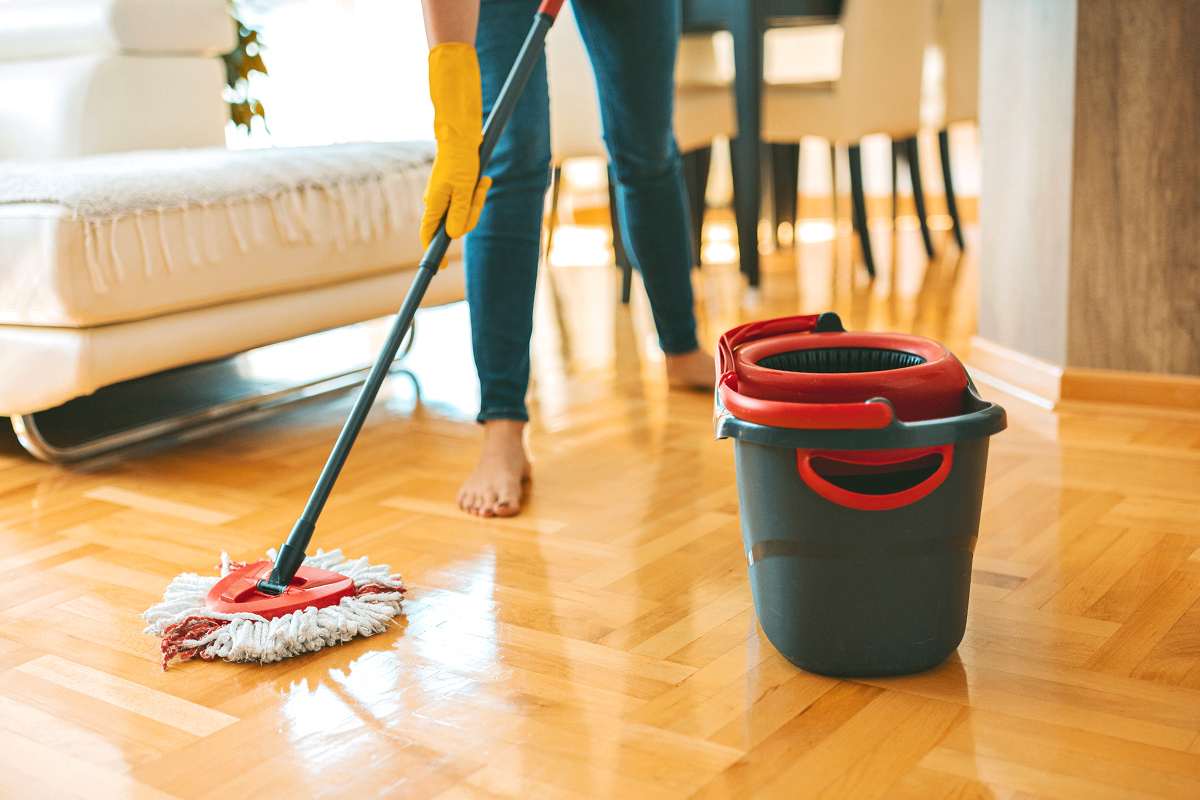When it comes to home safety, most of us know the basics: Lock the doors, keep a fire extinguisher handy, and never leave candles unattended. However, countless lesser-known hazards are hiding in plain sight, posing serious risks if ignored. From subtle smells to common household habits, these life-saving tips will help you safeguard your home…
1. Pour Baking Soda, Not Water, on Grease Fires
A grease fire on the stove can escalate in seconds. Many instinctively reach for water, but pouring water on a grease fire can cause the flames to explode. Instead, keep a box of baking soda nearby. Baking soda works by releasing carbon dioxide when heated, which helps smother the fire and prevent it from spreading.

2. Fishy Smells Can Signal Electrical Fires
If your home suddenly carries a faint fishy smell without a clear source, don’t ignore it. This odor often indicates overheated electrical components or faulty wiring, a serious hazard that can lead to an electrical fire. If you notice this warning sign, check outlets, switches, and electrical panels immediately.
More from our network
House Outlook is part of Inbox Studio, which publishes content that uplifts, informs, and inspires.
3. Warm Outlets or Switches Are a Red Flag
An electrical outlet or light switch that feels warm to the touch is not normal; it’s often a warning sign of overloaded circuits or faulty wiring. Both issues can increase the risk of an electrical fire. Consider having an electrician inspect any warm outlets as soon as possible.

4. Yellow Pilot Light? Watch for Gas Leaks
Gas appliances are safe when operating correctly, but a yellow pilot light instead of the typical blue one may indicate incomplete combustion. This can lead to a dangerous carbon monoxide leak. If you notice this color change, ventilate the area and contact a professional immediately. Never attempt to fix gas appliances yourself.


5. Rotten Egg Smell in Water Signals Contamination
Tap water that suddenly smells like rotten eggs could be contaminated with hydrogen sulfide gas or bacteria. Although mild odors can sometimes be caused by water treatment, a sudden, strong smell warrants caution. Do not use the water until it’s properly tested and declared safe.

6. Don’t Store Certain Cleaning Chemicals Together
Certain household cleaners, especially those containing bleach, ammonia, and strong acids, can become extremely dangerous when stored together. If accidentally mixed, they can produce toxic gases, such as chlorine gas, which may cause severe respiratory distress or worse. Store these chemicals in separate, well-labeled areas and keep them safely out of reach of children and pets.
7. Check Your Smoke Detectors Beyond the Battery
It’s not enough to simply replace smoke detector batteries once a year. Dust, humidity, and general wear can impair the sensors over time. Test each detector monthly and replace the units every 10 years to ensure full functionality.

8. Beware of Overloaded Power Strips
Using multiple high-wattage devices on a single power strip may seem convenient, but it’s a serious fire hazard. Power strips are designed for low-power devices; overloading them can cause overheating and sparks. Instead, spread your high-power electronics (microwaves, toasters, AC units, power tools, hair dryers, etc.) across multiple wall outlets or use a heavy-duty power strip with surge protection that protects against damage to your devices and potential fires.
9. Know the Signs of Carbon Monoxide Exposure
Carbon monoxide (CO) is an odorless and colorless killer, but early exposure can cause symptoms such as headaches, dizziness, and nausea. If multiple household members suddenly experience these issues, or if your CO detector goes off, evacuate immediately and call emergency services.

10. Inspect Your Home for Hidden Water Damage
Water damage, whether from leaky pipes or a faulty roof, can cause both mold growth and structural problems that may go unnoticed. Look for early warning signs such as discolored walls, musty smells, or warped floors. Addressing leaks promptly can prevent serious health hazards and expensive repairs.
Home safety isn’t just about following obvious rules; it’s about recognizing hidden dangers and acting before a small problem becomes a life-threatening one. By incorporating these tips into your routine, you’ll make your home a safer place for everyone.


















